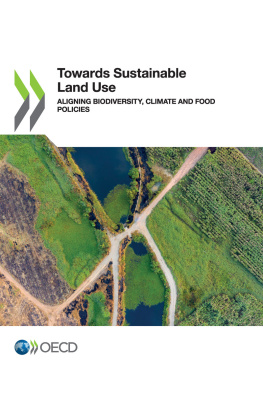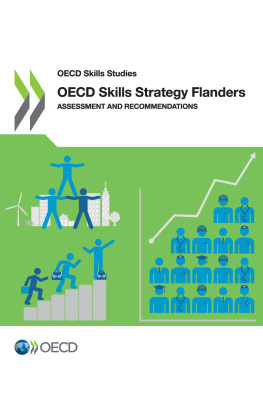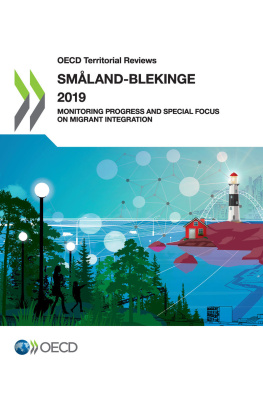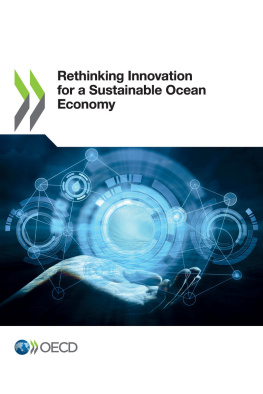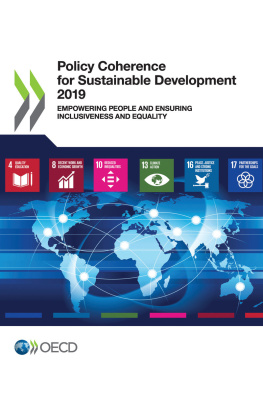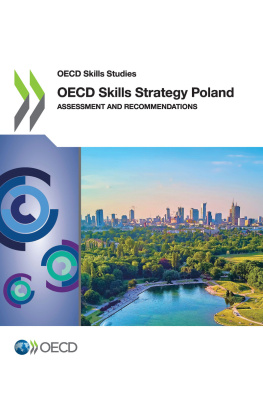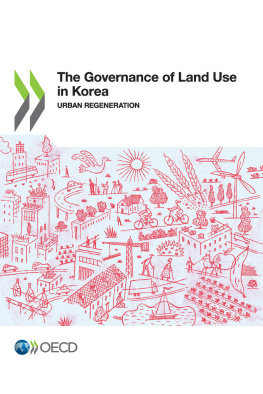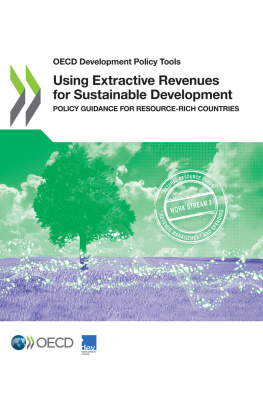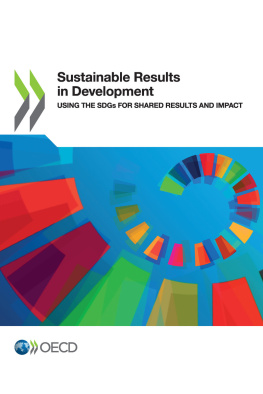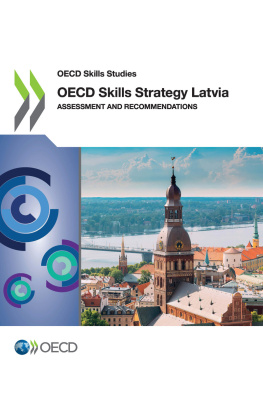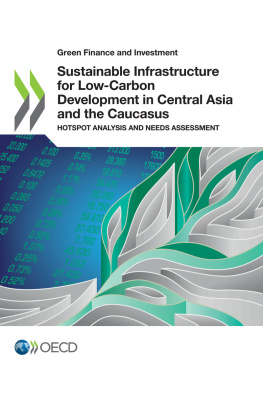OECD - Towards Sustainable Land Use
Here you can read online OECD - Towards Sustainable Land Use full text of the book (entire story) in english for free. Download pdf and epub, get meaning, cover and reviews about this ebook. year: 2020, publisher: OECD Publishing, genre: Politics. Description of the work, (preface) as well as reviews are available. Best literature library LitArk.com created for fans of good reading and offers a wide selection of genres:
Romance novel
Science fiction
Adventure
Detective
Science
History
Home and family
Prose
Art
Politics
Computer
Non-fiction
Religion
Business
Children
Humor
Choose a favorite category and find really read worthwhile books. Enjoy immersion in the world of imagination, feel the emotions of the characters or learn something new for yourself, make an fascinating discovery.
Towards Sustainable Land Use: summary, description and annotation
We offer to read an annotation, description, summary or preface (depends on what the author of the book "Towards Sustainable Land Use" wrote himself). If you haven't found the necessary information about the book — write in the comments, we will try to find it.
OECD: author's other books
Who wrote Towards Sustainable Land Use? Find out the surname, the name of the author of the book and a list of all author's works by series.
Towards Sustainable Land Use — read online for free the complete book (whole text) full work
Below is the text of the book, divided by pages. System saving the place of the last page read, allows you to conveniently read the book "Towards Sustainable Land Use" online for free, without having to search again every time where you left off. Put a bookmark, and you can go to the page where you finished reading at any time.
Font size:
Interval:
Bookmark:
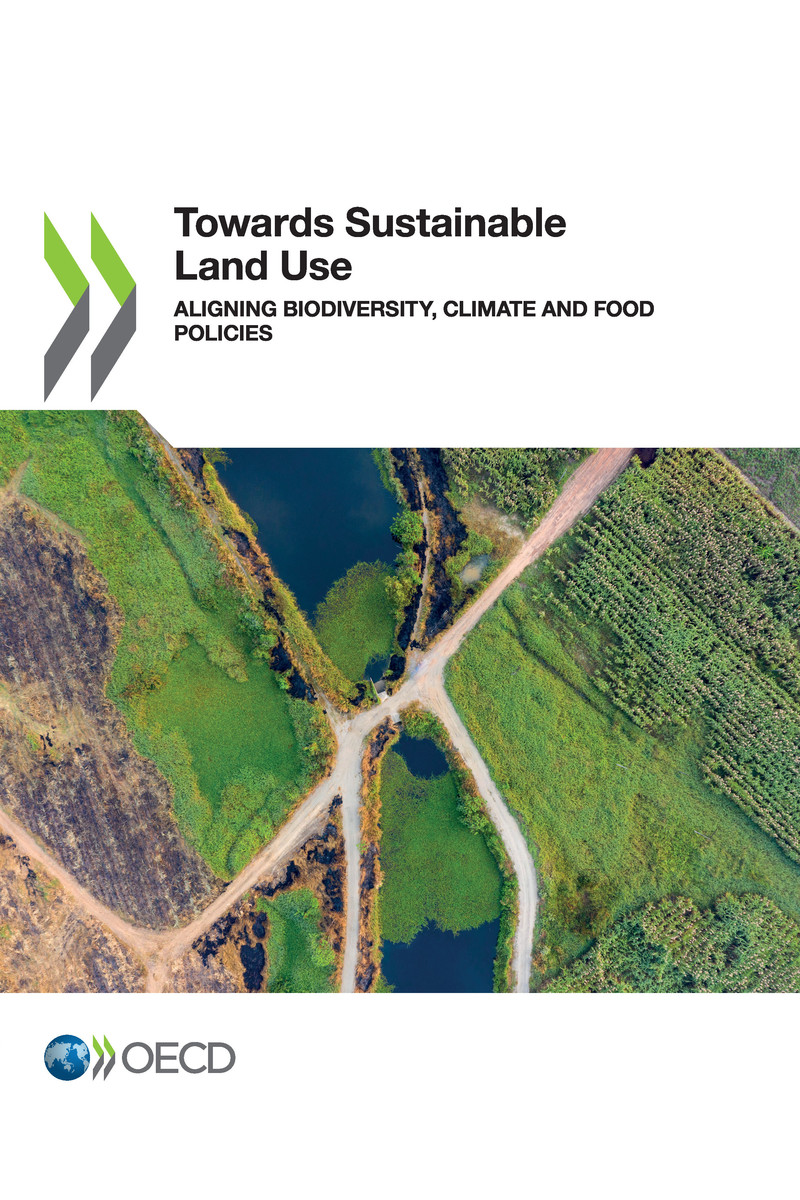
OECD (2020), Towards Sustainable Land Use: Aligning Biodiversity, Climate and Food Policies , OECD Publishing, Paris, https://doi.org/10.1787/3809b6a1-en .
The information in this document with reference to Cyprus relates to the southern part of the Island. There is no single authority representing both Turkish and Greek Cypriot people on the Island. Turkey recognises the Turkish Republic of Northern Cyprus (TRNC). Until a lasting and equitable solution is found within the context of the United Nations, Turkey shall preserve its position concerning the Cyprus issue.
The Republic of Cyprus is recognised by all members of the United Nations with the exception of Turkey. The information in this document relates to the area under the effective control of the Government of the Republic of Cyprus.
Land use is central to many of the environmental and socio-economic issues facing society today. The production of agricultural and forestry goods, which are fundamental to human well-being, has profound consequences for biodiversity and climate change. For example, the Global Assessment by IPBES estimates that 25% of animal and plant species are facing extinction, in part due to the loss and degradation of ecosystems, and the IPCC estimates that 23% of global anthropogenic emissions came from agriculture and land use between 2007 and 2016. Further, a rising global population and changes in consumption patterns towards more carbon-intensive diets are expected to place a growing strain on global land-use systems.
The twin challenges of reversing biodiversity declines and mitigating climate change, while producing sufficient food to ensure zero hunger, must be tackled together. Making land-use systems sustainable is central to achieving these and other Sustainable Development Goals.
This report, Towards Sustainable Land use: Aligning biodiversity, climate and food policies , provides good practice insights on how governments can transition to more sustainable land-use systems. It draws on experiences and insights across six case study countries, characterised by large agricultural and forestry sectors and associated greenhouse gas emissions, which in many cases also host globally important biodiversity. These countries are Brazil, France, Indonesia, Ireland, Mexico and New Zealand where emissions from agriculture ranged from 13-49% of their total greenhouse gas emissions (excluding land use, land-use change and forestry) in 2016. The report highlights how governments can facilitate the creation of coherent policies for sustainable land use at three important points in the governance process: relevant national strategies and action plans; institutional co-ordination; and the design and implementation of policy instruments (including comprehensive spatial planning).
We need to better understand and manage the synergies and trade-offs inherent in land-use systems, so they can deliver multiple benefits to society and nature. This report is for policy makers and practitioners operating in the land-use, biodiversity, climate and food nexus. I believe it provides valuable guidance on how to help address these challenging, yet crucially important, objectives.

Rodolfo Lacy
OECD Environment Director
This publication was prepared by the OECD Environment Directorate, under the leadership of Director Rodolfo Lacy and the subsidiary Climate, Biodiversity and Water Division led by Simon Buckle. The project managers are Katia Karousakis and Jane Ellis. The authors are William Symes, Katia Karousakis and Jane Ellis, with substantive input from Janek Toepper and David Gawith (both formerly ENV/CBW).
The work benefited from the presentations and discussion at the OECD workshop on Biodiversity, Climate Change and Agriculture: Towards Coherent Approaches, held on 25 October, 2017.
The authors would also like to thank the following OECD colleagues for their useful comments and suggestions during the drafting of this publication: Guillaume Grure, Gwendolyn DeBoe, Santiago Gurrero, Ben Henderson, Jussi Lankoski, Morvarid Bagherzadeh, Urzula Ziebinska (TAD/ARP), Gregoire Garsous (TAD/EPI), Shunta Yamaguchi, Peter Borkey (ENV/EEI), Rob Youngman, Xavier Leflaive, Gerard Bonnis, Hlne Blake, Lisa Danielson, Edward Perry and Simon Buckle (ENV/CBW). Feedback and comments from delegates of the Working Parties on Climate, Investment and Development (WPCID) and Biodiversity, Water and Ecosystems (WPBWE) are gratefully acknowledged, as are comments from the Joint Working Parties on Agriculture and Environment (JWPAE) and Trade and Environment (JWPTE) Nassera Belkhiter, Elodie Prata-Leal and Innes Reale provided administrative support in the preparation of this publication.
The OECD gratefully acknowledges the financial support and detailed review from the Department of Agriculture, Food and the Marine and the Environment Protection Agency of Ireland. The authors would also like to thank the Ministre de la Transition cologique et Solidaire of France for providing case study information. The views expressed herein can in no way be taken to reflect the official opinion of the Department of Agriculture, Food and the Marine and the Environment Protection Agency of Ireland or the Ministre de la Transition cologique et Solidaire of France.
Font size:
Interval:
Bookmark:
Similar books «Towards Sustainable Land Use»
Look at similar books to Towards Sustainable Land Use. We have selected literature similar in name and meaning in the hope of providing readers with more options to find new, interesting, not yet read works.
Discussion, reviews of the book Towards Sustainable Land Use and just readers' own opinions. Leave your comments, write what you think about the work, its meaning or the main characters. Specify what exactly you liked and what you didn't like, and why you think so.

